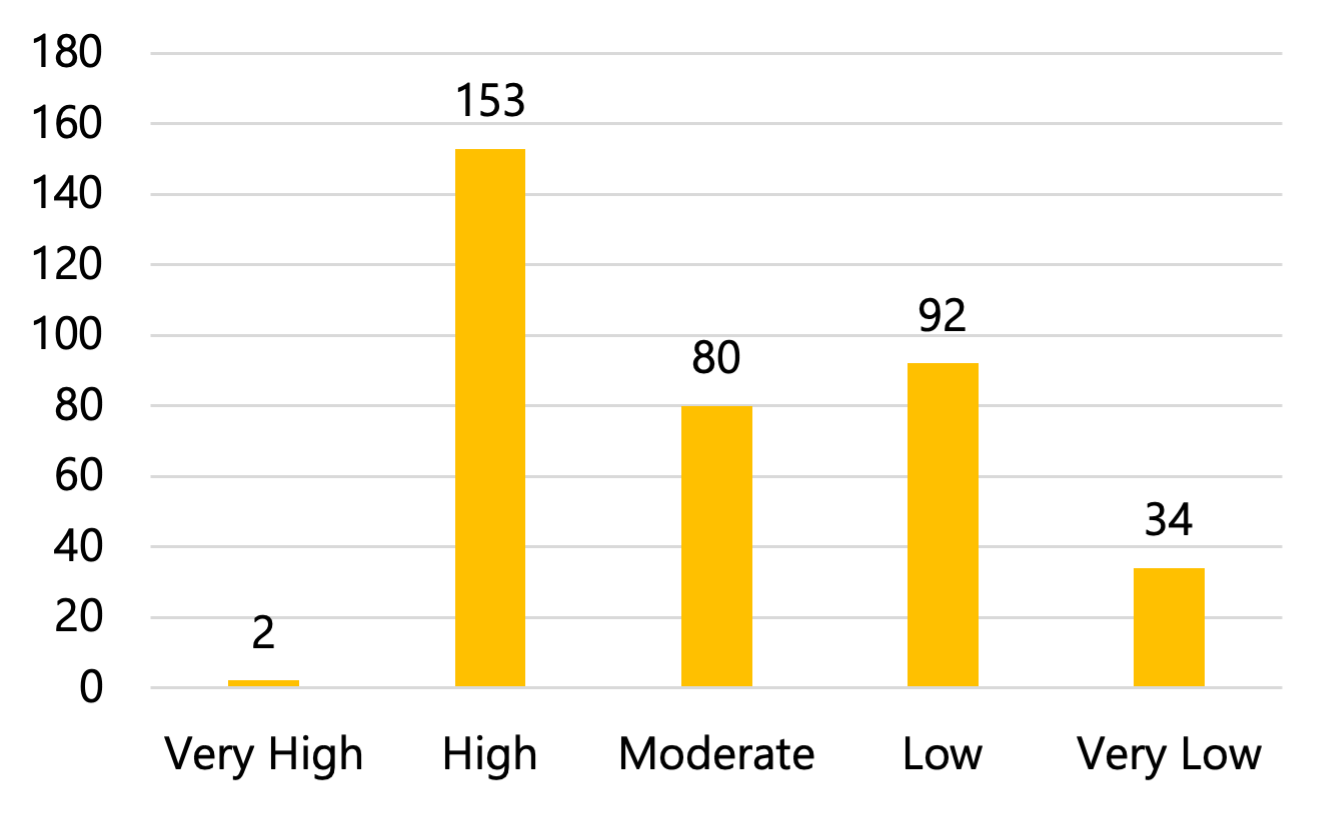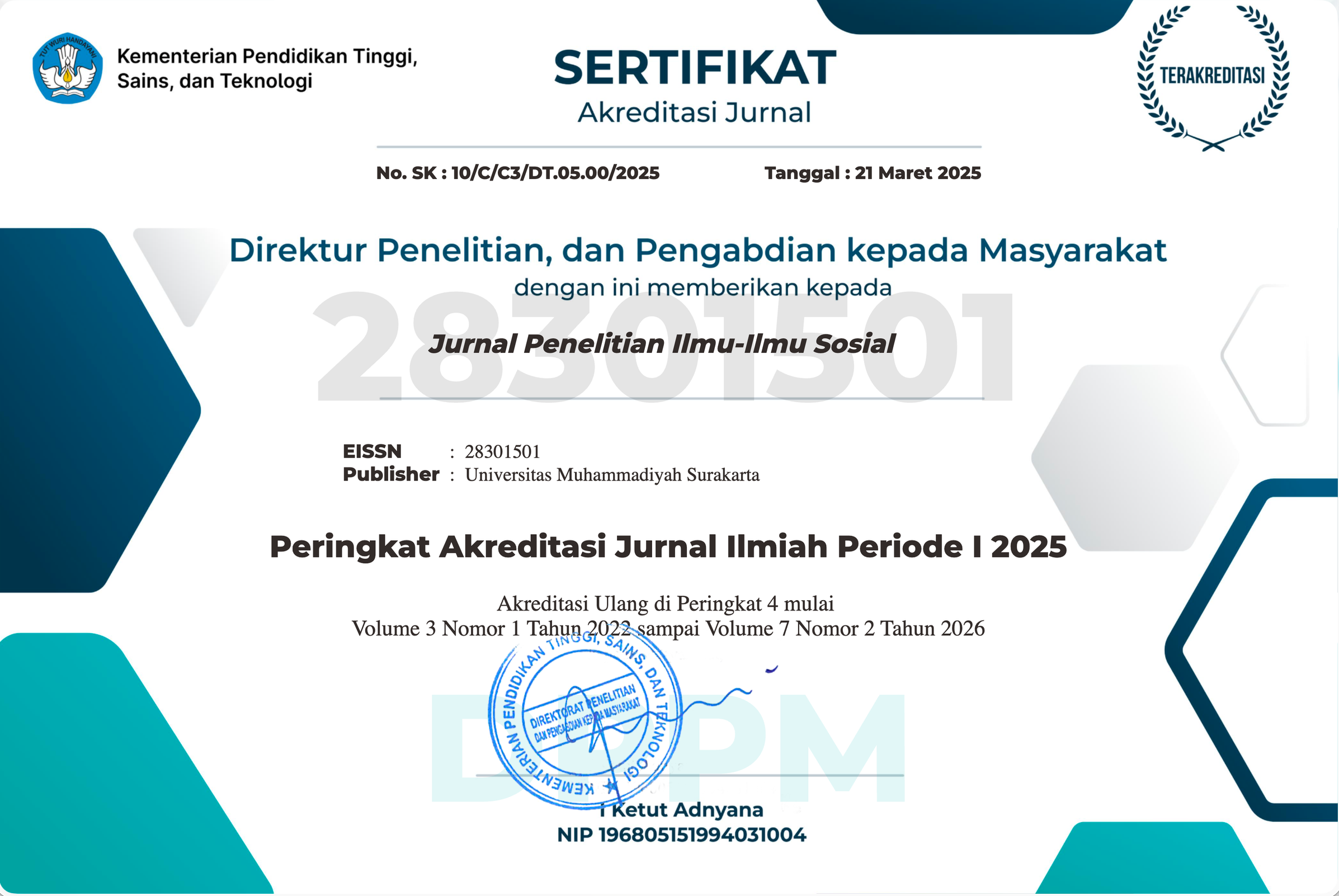The Role of Religiosity in Enhancing Academic Persistence among Adolescents in Orphanages
DOI:
https://doi.org/10.23917/sosial.v6i2.8355Keywords:
academic persistence, orphanage, religiousityAbstract
Adolescents require support from their parents to help them face the challenges that arise during their development. However, in reality, not all adolescents receive parental guidance, and some end up living in orphanages. Adolescents in orphanages tend to experience pressure and problems more easily, especially in the academic field. Initial data shows that orphanage adolescents are more prone to giving up when faced with academic failure, and some have not yet determined their goals or aspirations after completing their education, which relates to academic persistence. Adolescents with a high level of religiosity tend to have better guidance and resilience. This study investigates how religiosity influences academic persistence in orphanage adolescents, highlighting its significant contribution to fostering resilience and goal-setting. The sample in this study consisted of 361 respondents, all of whom were adolescents living in orphanages in Makassar, selected using purposive sampling. The measurement tools in this study used the Centrality of Religiosity Scale (CSR-15) with a Cronbach's Alpha coefficient of 0.713 and the Academic Persistence Scale with a Cronbach's Alpha coefficient of 0.672. The results show that religiosity influences academic persistence among adolescents in orphanages in Makassar, with a significance value of 0.000 (sig 0.000; sig < 0.05) and an R-square of 0.277 or a contribution effect of 27.7% contribution of religiosity to academic persistence and the broader implications. Based on the study's findings, orphanages should increase the focus on religious education to foster adolescents' motivation to continue and complete their education to the fullest.
Downloads
References
Abar, B., Carter, K. L., & Winsler, A. (2009). The effects of maternal parenting style and religious commitment on self-regulation, academic achievement, and risk behavior among African-American parochial college students. Journal of adolescence, 32(2), 259-273. https://doi.org/10.1016/j.adolescence.2008.03.008
Ancok, D., & Suroso, F. N. (2015). Buku Psikologi Islami: Solusi Islam Atas Problem Problem Psikologi. Yogyakarta: Pustaka Pelajar.
Ayurani, I. (2023). Pengaruh Konseling Kreatif Teknik Visual Arts Dan Religiusitas Terhadap Kebahagiaan Remaja Panti Asuhan Al-Jam’iyatul Washliyah Medan. Al-Muaddib: Jurnal Ilmu-Ilmu Sosial dan Keislaman, 8(1), 108-127.
Brooks, J. E., & Allen, K. R. (2016). The influence of fictive kin relationships and religiosity on the academic persistence of African American college students attending an HBCU. Journal of Family Issues, 37(6), 814-832.
Chanifah, N., Hanafi, Y., Mahfud, C., & Samsudin, A. (2021). Designing a spirituality-based Islamic education framework for young muslim generations: A case study from two Indonesian universities. Higher Education Pedagogies, 6(1), 195–211. https://doi.org/10.1080/23752696.2021.1960879
Chairani, L., Wimbarti, S., Subandi, S., & Wibirama, S. (2023). Uji Validitas Konstruk The Centrality of Religiosity Scale (CRS-15) Pada Sampel Muslim. Psikobuletin: Buletin Ilmiah Psikologi, 4(2), 125-136.
Constantin, T., Holman, A., & Hojbota, A. M. (2011). Development and validation of a motivational persistence scale. Psihologija, 45(2), 99–120.
Donahoo, S., & Caffey, R. A. (2010). A sense of home: The impact of church participation on African American college students. Journal of Research on Christian Education, 19, 79–104. doi:10.1080/10656211003630471
Gita, M., Suyatno, H. S., Reliani, R., & Anis Rosyiatul, H. (2022). The Food Intake Pattern in Relation to the Nutritional Status of School Age 6–12-Year-Old in Muhammadiyah Orphanage. Gaceta Médica de Caracas, 130(1), 169-175.
Glock, C., & Stark, R. (1965). Religion and Society in Tension. Chicago: Rand McNally.
Hawari, D. (1997). Alquran dan Ilmu Jiwa. Yogyakarta: Mizan Press.
Huber, S., & Huber, O. W. (2012). The centrality of religiosity scale (CRS). Religions, 3(3), 710-724.
Hurlock, E. B. (2014). Psikologi Perkembangan: Suatu Pendekatan Sepanjang Rentang Kehidupan. Erlangga.
King, P. E., & Furrow, J. L. (2008). Religion as a resource for positive youth development: Religion, social capital, and moral outcomes. Developmental Psychology, 40(5), 703-713. https://doi.org/10.1037/0012-1649.40.5.703
Khoeriyah, N., & Harahap, L. (2020). Hubungan Antara Religiositas Dengan Perilaku Prososial Remaja Di Panti Asuhan Yatim Putri Aisyiyah Karanganyar. Academic Journal of Psychology and Counseling, 1(1), 1-18.
Khairiah, R., Hafnidar, H., & Amin, S. (2023). Kebahagiaan Santri ditinjau dari Tingkat Religiusitas. INSIGHT: Jurnal Penelitian Psikologi, 1(1), 1-10.
Khairudin, K., & Mukhlis, M. (2019). Peran religiusitas dan dukungan sosial terhadap subjective well-being pada remaja. Jurnal Psikologi, 15(1), 85-96.
Lestari, Y. S. (2024). The Relationship between Social Support and Religious Involvement with Forgiveness in Adolescents Living in Orphanages. International Journal of Multicultural and Multireligious Understanding, 11(2), 467. https://doi.org/10.18415/ijmmu.v11i2.5427
Mortenson, T. G. (2005). Measurements of persistence. College student retention: Formula for student success, 31-60.
Seligman, M. E. P., & Peterson, C., (2004). Character Strengths and Virtues: A Handbook and Classification. New York: Oxford University Press.
Thalib, T., Hanafi, S., Aufar, F., Irbah, S., & Eduardus, J. S. (2018). The academic persistence scale. Science And Education For Improving Learning Quality In Moluccas Archipelago, May 2019, 122-130.
Radisti, M., Suyanti, S., & Albadri, A. (2023). Religiusitas dan konsep diri akademik dengan stres akademik mahasiswa santri. PSYCOMEDIA: Jurnal Psikologi, 2(2), 102-111.
Rochanah, R., Muna, F. I., & Ariyanto, B. (2022). The Building Religious Character of Children Orphanage at Nurul Jannah Kudus. Bulletin of Early Childhood, 1(2), 68. https://doi.org/10.51278/bec.v1i2.552.

Downloads
Submitted
Accepted
Published
Issue
Section
License
Copyright (c) 2025 Alifa Auliya Putri, Tarmizi Thalib, Sitti Syawaliyah Gismin

This work is licensed under a Creative Commons Attribution 4.0 International License.















